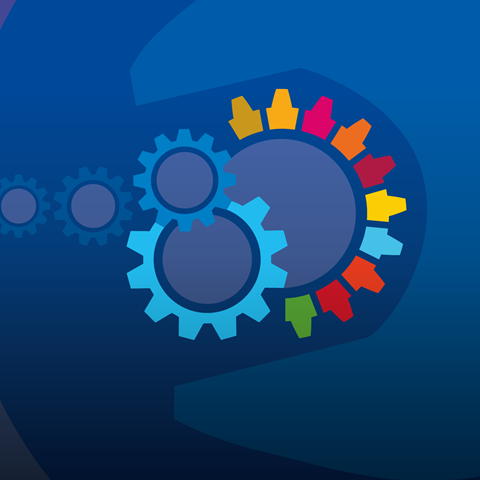Next steps: PRI support for signatories
This report is only the beginning in bringing together thinking on ESG risks and opportunities with thinking on the potential to shape SDG outcomes. The scale of the challenge will require working with others across the finance sector, as well as with other key stakeholders. The PRI will assist signatories seeking to shape outcomes in line with the SDGs – across the proposed framework, for each of the investor actions – as well as supporting disclosure and reporting. Subsequent guidance on each action could focus on improving transparency and involvement in collaboration, all with the objective of shaping real-world outcomes.
Across the framework
Building on the investor examples in Appendix 2, the PRI will publish a series of case studies on investing in line with SDGs outcomes. These case studies will focus on a diverse set of examples across asset classes, investor actions and parts of the framework – highlighting approaches taken by investors of different roles, sizes, jurisdictions and methods of investment.
As well as deepening understanding of what investors are doing at an individual investee level, case studies (and further research – including through the PRI’s Academic Network) could include a parallel analysis (including considering objectives) of the most important outcomes to society and the environment at the systemic level. Research could also be undertaken to deepen understanding of whether a focus on combining beta/macro/sectoral/ cross-sectoral issues with shaping SDG outcomes reduces volatility and risks to economies, and leads to stronger riskadjusted returns at the overall portfolio level.
The PRI will look to support investors to focus on specific key issues that have systemic implications for market beta or the real economy, such as climate change and human rights. This will include working through a range of other initiatives and channels, as has been outlined for climate change in Appendix 2.
Finally, the PRI will look into developing working groups of signatories (including asset owners, investment managers and service providers) seeking to shape outcomes in line with the SDGs, to support sharing of best practice and to develop consensus on how to address common challenges.
Investment decisions
The PRI will help signatories to understand opportunities to use their investment decisions to support increasing positive outcomes and decreasing negative outcomes (Parts 3 and 4). This will include guidance to support selection, appointment and monitoring, and for direct investing across asset classes.
Stewardship of investees
The PRI is developing a programme of work (Active ownership 2.0) to build on existing stewardship practices and expertise by moving beyond a focus on processes and interests of individual investors, to a focus on outcomes and common goals.
Engagement with policy makers and key stakeholders
The PRI’s existing tools and work programme for investor engagement in public policy will inform, or help to support, shaping SDG outcomes – particularly in Parts 3 and 4 of our framework. In addition, in 2019, UNEP FI and the PRI initiated A Legal Framework for Impact, a project to explore existing legal frameworks in eleven jurisdictions to analyse: a) the extent to which asset owners can prioritise SDG-aligned outcomes, including where this may lead to a negative effect on investment return; b) how investment managers can or should address such outcomes if their investment mandate does not mention them.
Disclosure and reporting
Harmonising sustainability performance reporting across the industry
The next phase of the PRI’s work on Driving meaningful data, will include supporting the development of an end-to-end sustainability reporting system that cohesively characterises the risks, opportunities and sustainability performance of corporates and investors, against global thresholds and timeframes – including the SDG targets and indicators.
To do this, the PRI will collaborate to improve the specification, consistency and supply of decision-useful sustainability information, and support the development of appropriate criteria that evolves sustainability-related reporting and disclosure.
Revising the PRI’s own Reporting Framework
Following consultation with signatories in 2019 and 2020 on revising the PRI Reporting Framework, and consultation on a draft of this paper in 2020, the PRI will include an initial set of questions on outcomes in the pilot year of the new Reporting Framework in 2021.
The new Reporting Framework will, in the ‘core’ section (questions that are mandatory to answer, and are assessed), include a small number of questions about policies on shaping real-world outcomes and processes used for identifying outcomes (reflecting Parts 1 and 2 of this framework). Additional questions on outcomes will be included in the ‘plus’ section (questions that are voluntary to answer and are not assessed), which will focus on how signatories are seeking to shape outcomes, individually and collectively, and how progress is being measured against outcomes objectives (reflecting Parts 2-5 of this framework).












